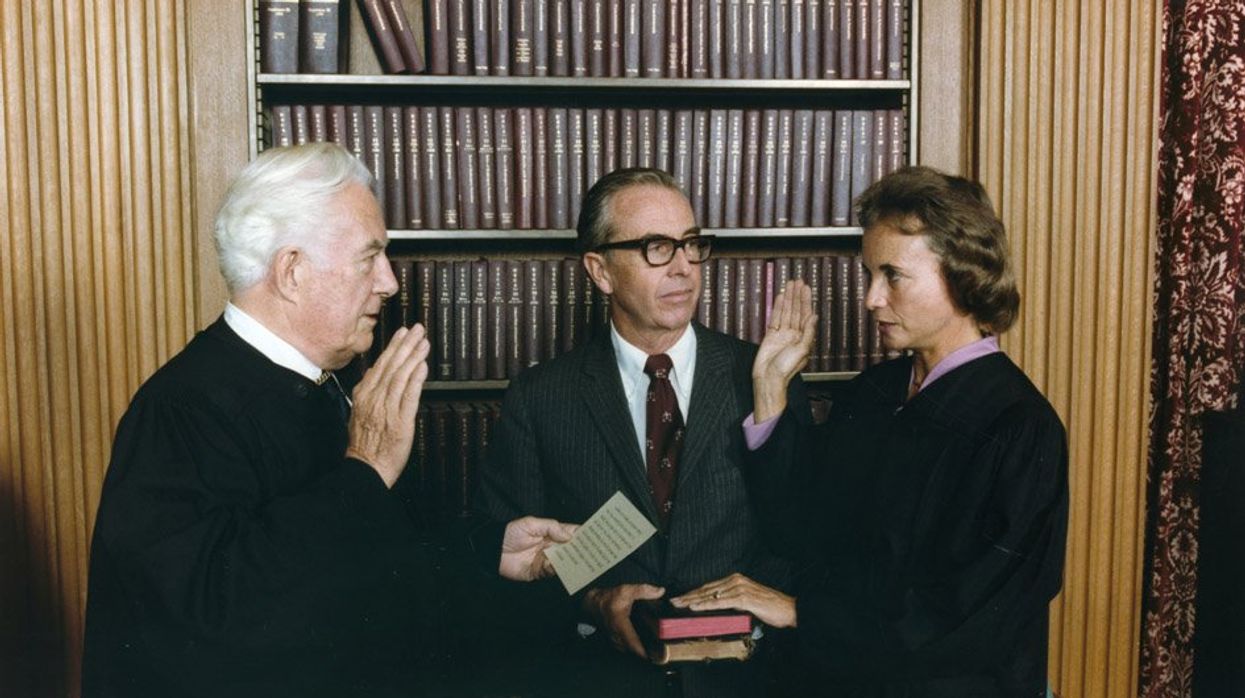Breslin is the Joseph C. Palamountain Jr. Chair of Political Science at Skidmore College and author of “A Constitution for the Living: Imagining How Five Generations of Americans Would Rewrite the Nation’s Fundamental Law.”
Regardless of your political leanings, this is a time for mourning. Former Supreme Court Justice Sandra Day O’Connor has died.
Ninety-eight percent of Americans — those born before June 24, 2022, the day Dobbs v. Jackson Women’s Health Organization was decided — lived in O’Connor’s world. No longer. Her legacy as a judicial pioneer, a rational and thoughtful jurist, and, yes, even a champion of the rights of women and minorities, has abruptly been dismantled in just the last 18 months. Even for liberals like me, it is a tragic development.
O’Connor was a darling of the right, and for the most part she did not disappoint. The first woman to sit on the U.S. Supreme Court, O’Connor was often described as a “moderate” or “classical” conservative. She emerged as both an independent thinker and the all-important swing vote later in her career. She worked to build consensus on a deeply divided court and to shape opinions in her image of a “more perfect Union.”
Sandra Day O’Connor’s impact on two areas of jurisprudence — abortion and affirmative action — is beyond compare. Publicly, it is well-known that she delivered the critical fifth vote in the landmark 1992 decision Planned Parenthood v. Casey that upheld a woman’s right to privacy. But it is what she did behind the scenes in that case that qualifies her as a true champion of civil liberties. She refused to buckle under the pressure of the far-right bloc — all men, mind you — when they were clamoring to overturn Roe v. Wade. She threatened to move farther to the left if the likes of Chief Justice William Rehnquist and Justices Antonin Scalia, Clarence Thomas and Byron White continued their crusade to strip women of the constitutional ability to seek an abortion.
She withstood the withering, and quite personal, attack from Scalia, who not so subtly analogized her majority opinion in Casey with that of Chief Justice Roger Brooke Taney, the author of the horrifically repulsive Dred Scott decision, which determined enslaved Blacks were neither citizens nor had any legal rights. O’Connor, to her credit, was determined to preserve the liberty of those Americans (pregnant women in this case) who do not have an adequate voice in the political process.
The same is true in the constitutional arena of affirmative action. O’Connor was the critical, albeit conservative, voice in allowing institutions of higher education to consider race in admissions. Again, she did her best work behind the scenes. While the court struggled with how to thread the equal protection needle in affirmative action cases, O’Connor left the door open for colleges to continue their affirmative action policies. She argued, in Grutter v. Bollinger, that the longstanding judicial practice of disallowing racial preferences could be overcome if a college sought to diversify its student body with an admissions approach that did not set quotas and where admissions officials read each application individually. Affirmative action strategies, she concluded, were not “fatal” simply because they spotlighted race. Diversity in the classroom was a “compelling state interest.” A majority of jurists on the nation’s highest court agreed.
Sadly, the contemporary high court does not agree. The Harvard and University of North Carolina affirmative action cases, as well as Dobbs, signal the end of a generational expanse in which O’Connor’s constitutional statecraft ruled the day — a period, I would argue, that was far less polarizing than the one we inhabit now. Indeed, she would find it highly ironic that in case after case the dissenters are all women. She would surely recall those battles she waged with a patriarchal institution. Sandra Day O’Connor’s world is now gone, erased by a Supreme Court that neither embraces her sagacity nor seemingly cares about her legacy.




















Trump & Hegseth gave Mark Kelly a huge 2028 gift